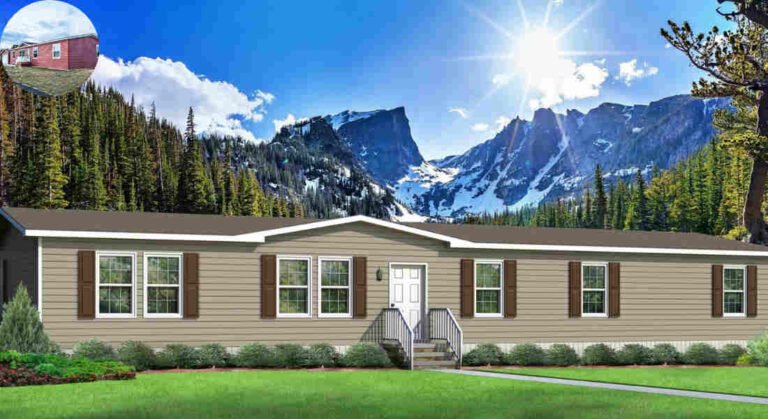FHA financing does allow for the purchase of manufactured homes, including single wide models, but with specific conditions. The FHA offers two main loan programs for manufactured homes: Title I and Title II. Title I loans can finance manufactured homes even if the borrower does not own the land where the home is located, allowing for financing of the home, the lot, or both. Title II loans require the manufactured home to be permanently attached to land owned by the borrower, meeting strict building codes and foundation standards. The home must meet HUD requirements, including a minimum size of 400 square feet and construction after June 15, 1976. FHA loans have flexible credit requirements and low down payments, making them accessible options for financing manufactured homes, but eligibility depends on meeting both property and borrower criteria.
What is an FHA loan?
An FHA loan is a government-backed mortgage designed to make homeownership more accessible. Those with less-than-perfect credit and first-time buyers are particularly attracted to it.
The down payment requirements for these loans are often as low as 3.5%.This feature makes them appealing for individuals who might struggle to save large sums of money.
FHA loans also offer competitive interest rates, which can be advantageous in today’s fluctuating market. The insurance premiums associated with these loans protect lenders in case borrowers default, allowing for more flexible lending criteria.
This financing option aims to support a wider range of potential homeowners by making it easier to secure a mortgage.
Eligibility requirements for an FHA loan
To qualify for an FHA loan, borrowers must meet specific eligibility criteria. A key requirement is a credit score of at least 580 to secure the minimum down payment of 3.5%. Those with scores between 500 and 579 may still qualify but will face a higher down payment.
Income stability plays a crucial role too. Lenders typically look for a steady income history over the past two years. This assures them that you can manage monthly mortgage payments.
Generally, your DTI should not exceed 43%, although some lenders may allow exceptions based on other factors.
Residency status matters; only U.
S. citizens or eligible non-citizens can apply for FHA loans. Meeting these requirements opens doors to affordable housing opportunities through this government-backed program.
You may also read (does home square footage include the basement area).
The difference between single wide and double wide manufactured homes
Single wide manufactured homes are typically narrower and more compact, generally measuring between 14 to 18 feet in width. This design allows them to fit easily on smaller lots or urban spaces.
On the other hand, double wide homes consist of two sections that are joined together at the site. They offer a much wider living space, usually ranging from 20 to 36 feet across. This additional width translates into larger rooms and more open floor plans.
The construction process also differs significantly. Single wides are built as one complete unit while double wides require assembly on-site after transporting both halves.
When it comes to resale value, double wide homes often hold an edge due to their spaciousness and appeal for families seeking roomier accommodations. Meanwhile, single wides may attract first-time buyers or those looking for simpler living options without sacrificing comfort.
Can you use an FHA loan to finance a single wide manufactured home?
Yes, you can use an FHA loan to finance a single wide manufactured home, but there are specific conditions. The Federal Housing Administration (FHA) has guidelines that must be met for the loan to be approved.
First, the home must meet certain construction and safety standards. These homes need to be built after June 15, 1976, when federal regulations on manufactured housing came into effect.
This includes having permanent utilities and being affixed to a foundation.
It’s important to note that while financing options exist for single wide homes through FHA loans, not all lenders may offer this type of financing. Always check with your lender about their eligibility criteria before proceeding.
You may also read (does new flooring really increase your homes value).
Pros and cons of using an FHA loan for a single wide manufactured home
Using an FHA loan for a single wide manufactured home comes with distinct benefits. One major advantage is the low down payment requirement, often as little as 3.5%. This makes it accessible for many buyers who may not have substantial savings.
This can open doors for individuals who might struggle to secure conventional financing.
However, there are drawbacks to consider. FHA loans impose limits on the price of the home, which could restrict your options in certain markets.
It’s essential to weigh these factors carefully when deciding if this financing option fits your needs.
Alternative financing options for single wide manufactured homes
If you’re exploring financing options for single wide manufactured homes, there are alternatives outside of FHA loans. Traditional lenders may provide personal loans or other types of mortgages specifically designed for manufactured homes. These, however, usually come with higher interest rates and less favorable terms.
Credit unions can be a great resource as well. They tend to offer competitive rates and personalized service. Some have specific programs tailored to assist buyers of manufactured homes.
This can sometimes simplify the process since they understand the nuances involved in purchasing a manufactured home.
For those willing to explore non-traditional routes, consider private lending or peer-to-peer lending platforms. These avenues might offer more flexibility but do require careful consideration regarding interest rates and repayment terms.
Each alternative has its advantages and potential drawbacks, making it essential to weigh your choices carefully before deciding on the best path forward for your purchase of a single wide manufactured home.
You may also read (does florida home insurance cover hurricane damage).
